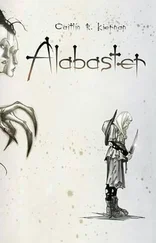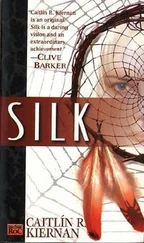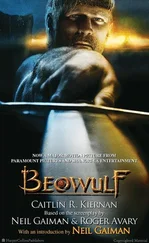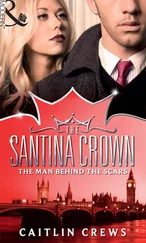Caitlin R. Kiernan - The Red Tree
Здесь есть возможность читать онлайн «Caitlin R. Kiernan - The Red Tree» весь текст электронной книги совершенно бесплатно (целиком полную версию без сокращений). В некоторых случаях можно слушать аудио, скачать через торрент в формате fb2 и присутствует краткое содержание. Жанр: Ужасы и Мистика, на английском языке. Описание произведения, (предисловие) а так же отзывы посетителей доступны на портале библиотеки ЛибКат.
- Название:The Red Tree
- Автор:
- Жанр:
- Год:неизвестен
- ISBN:нет данных
- Рейтинг книги:3 / 5. Голосов: 1
-
Избранное:Добавить в избранное
- Отзывы:
-
Ваша оценка:
- 60
- 1
- 2
- 3
- 4
- 5
The Red Tree: краткое содержание, описание и аннотация
Предлагаем к чтению аннотацию, описание, краткое содержание или предисловие (зависит от того, что написал сам автор книги «The Red Tree»). Если вы не нашли необходимую информацию о книге — напишите в комментариях, мы постараемся отыскать её.
The Red Tree — читать онлайн бесплатно полную книгу (весь текст) целиком
Ниже представлен текст книги, разбитый по страницам. Система сохранения места последней прочитанной страницы, позволяет с удобством читать онлайн бесплатно книгу «The Red Tree», без необходимости каждый раз заново искать на чём Вы остановились. Поставьте закладку, и сможете в любой момент перейти на страницу, на которой закончили чтение.
Интервал:
Закладка:
“Oh,” the librarian said, her face brightening at once. “Oh, well, now that’s wonderful, isn’t it? I mean, a writer and a painter, under the same roof. Why, you almost have your very own artists’ colony, don’t you?”
“Almost,” I replied.
“Please ask her to stop by here sometime. I’d love to meet her.”
I told her that I would, knowing that I wouldn’t do anything of the sort. Then I asked the birdlike librarian if she’d mind me holding on to the book a while, and she said certainly not, because, after all, I’d written it, hadn’t I? So, she left me by myself again, and I laid the anthology of New England writing on the floor beside my chair and spent the next couple of hours reading those stories I’d written more than a decade ago. Some of them hold up well enough. Some of them almost do. And others make me cringe, and leave me thankful that Silent Riots vanished after the hardback and then only one paperback printing.
It was almost six o’clock when I finally closed the book and allowed myself to think about heading back to the sweltering house and temperamental Constance. The library’s open until eight on Wednesdays, and I seriously considered hanging around until they shooed me out the door. But poring over all those old stories had a peculiar effect on me — I never read my own stuff after it’s published. Well, practically never. I wasn’t exactly depressed, at least no more than usual, no more than when I’d come in. But I found myself wanting to be back in the house, because even if it isn’t home, it’s the sorry substitute that has to suffice for the foreseeable future, and at least there are enough of my things there to foster the illusion that it’s where I belong. I wanted a beer, and I desperately needed a cigarette, and to lie in my “own” rented bed for a while. Maybe, I thought, while I was gone, Constance had succumbed to an attack of ennui and hung herself. Or maybe she’d had a nasty accident with a nail gun.
No such luck.
I found her sitting in the hallway, not far from the foot of the attic stairs. Just sitting there, sobbing, her legs pulled up close to her chest, her arms wrapped tightly about them. The hall light was off, and the shadows had grown almost as thick as the heat and the incongruent reek of sweat and turpentine coming off her. I stood staring at her, wondering what the hell I was supposed to do or say, and then she let me off the hook by speaking first.
“I think I owe you an apology, Sarah.”
“Yes,” I agreed, squatting down next to her. “I think you do.”
“I’m never at my best when I’m afraid,” she said, and I recalled her telling me the exact same thing the day she’d dared me to go back to the tree alone and we’d argued (And how long ago was that? A week? Ten days?). She wiped roughly at her snotty nose with a paint-stained hand, then, leaving a dark smear of indigo across her upper lip and the end of her nose.
“Constance, have you entirely given up washing your hands? Or is that part of your process?” I asked, and she smiled and almost laughed.
“They just get dirty again,” she replied. “Well, no. Not dirty. It’s not dirt, is it? But you know what I mean.”
“The sacred grime of creation,” I said, affecting as professorial a tone as I was able. I stopped squatting, because it was making my hips ache, my hips and my kidneys, and I sat down on the floor.
“Anyway, I wanted you to know, I am sorry.”
“You should be,” I told her.
She didn’t respond immediately, but stared at her hands a while, staring into all those competing, intermingled hues of blue and green smudged across her palms and knuckles, the flecks of red and orange and yellow on her fingers. Her hands made me think of autumn leaves tumbling in a rough surf. In the waves before a storm, perhaps.
“You know, last time,” she said, “you were a lot more gracious.”
“Last time was the first time. And last time, we’d not made love.”
Constance smirked and shrugged her shoulders. She’d stopped sobbing. “Is that what we did, Sarah? Did we make love? I thought it was just sex.”
I sighed and dug my cigarettes and lighter out of my shirt pocket. I offered her one and she accepted, and then I lit it for her before lighting my own. I breathed the smoke in, and breathed the smoke out, hurrying the nicotine into my bloodstream.
“Yeah, it was just sex,” I admitted. “Poor choice of words. I’m not feeling at all perspicuous at the moment.”
“I’m not saying it wasn’t good.”
“I didn’t take it that way,” I told her, and watched our cigarette smoke rising, commingling, curling and slowly dissipating in the muggy air.
“It was good,” she said. “At least, it was good for me. And it helped clear a lot of negative shit out of my head. It just didn’t stay cleared out.”
I blew a smoke ring, and said, “I’m always available for repeat performances.” Which is about the best I’m capable of, when it comes to flirting.
She laughed and stopped looking at her hands long enough to wink at me.
“Then I’ll keep you posted,” she said. And, changing the subject, “I think there’s a coyote hanging around the house.”
“So there are coyotes up here.”
“Oh, yeah. There are,” she replied. “Lots of them. But this might only be a fox. I’m not sure.”
“No wolves, though, right?” I asked her, and looked about for something within reach that could serve as an ashtray.
“Not likely. Not anymore. Though, back in March, a farmer shot a wolf somewhere up in western Massachusetts. It was in the newspapers. It was even on television.” She took the now-familiar ginger Altoids tin from her smock and opened it, tapping ash into it, then passing it to me. “It was killing livestock,” she continued. “Still, the first wolf anyone’s seen in Massachusetts in something like a hundred and sixty years, and this Swamp-Yankee fucker up and shoots the poor thing for eating his goddamn sheep.”
And I very nearly asked Constance how she knew what had been in the local papers and on the local news, given she was in Los Angeles back in March. But there are always phone calls to, and from, relatives and friends back east, right? There’s always the internet. I kept the question to myself.
“You saw a coyote?” I asked, instead.
“No. Well, maybe. I’ve seen something a couple of times now, skulking around by the garbage cans. It might only be a fox, but it seemed big for a fox. And the wrong color.”
“Should we tell Blanchard?”
“What for?” she asked. “So he can murder the poor thing.” That was the word she used— murder .
And then we were talking about bears, specifically about the black bear that was spotted around South County in May. It had displayed a fondness for bird feeders. But I wasn’t thinking about bears or birdseed. I was thinking about Harvey’s manuscript and the account of Susan and William Ames. Back in 1840, not so long before the last wolves were exterminated from the forests of New England, didn’t the doomed Mr. Ames claim to have repeatedly seen his missing wife in the company of a very large wolf? That’s what I remember, though I haven’t looked back through the manuscript to see if my memory is mistaken.
Time to end this meandering mess of an entry and go to bed. If I’m lucky, I won’t dream about wolves and the wayward wife of William Ames. If I’m really lucky, I won’t dream about Amanda, either, or Constance Hopkins, for that matter. Somehow, in only the space of half an hour, while we were sitting there in the hallway talking about wildlife, I went from furious to horny. I think I prefer furious; it’s quite a bit less distracting.
Читать дальшеИнтервал:
Закладка:
Похожие книги на «The Red Tree»
Представляем Вашему вниманию похожие книги на «The Red Tree» списком для выбора. Мы отобрали схожую по названию и смыслу литературу в надежде предоставить читателям больше вариантов отыскать новые, интересные, ещё непрочитанные произведения.
Обсуждение, отзывы о книге «The Red Tree» и просто собственные мнения читателей. Оставьте ваши комментарии, напишите, что Вы думаете о произведении, его смысле или главных героях. Укажите что конкретно понравилось, а что нет, и почему Вы так считаете.












